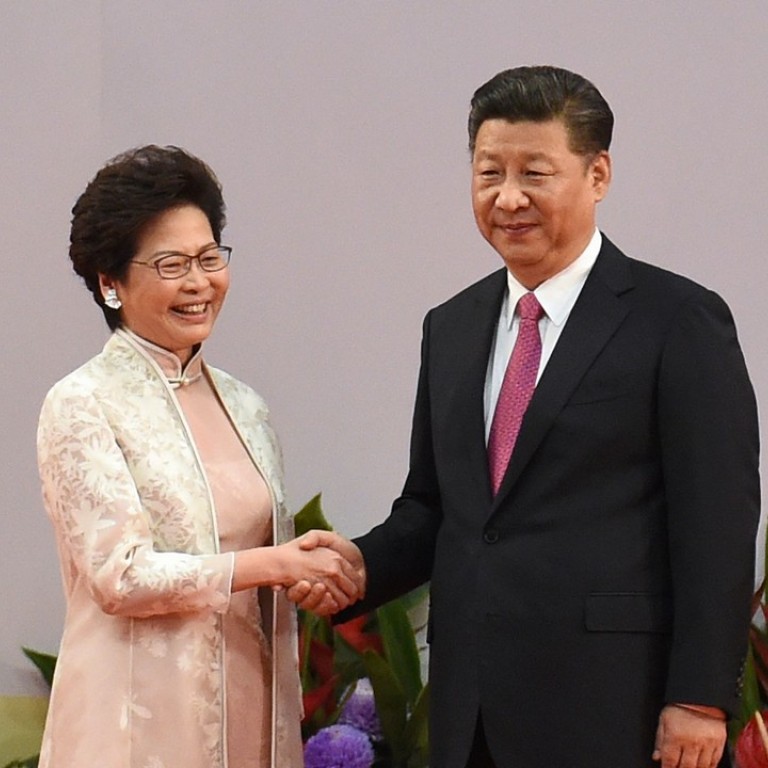
President Xi Jinping marks ‘red line’ in warning to Hong Kong on national sovereignty
In a tough speech that also calls for consensus, the president warns that any challenge to Beijing is ‘absolutely impermissible’
Drawing a link between the political tensions in the city and missed opportunities for socio-economic development, Xi warned that the city “cannot afford to be torn apart by reckless moves or internal rift”.
He spoke of the value of the “one country, two systems” model of governing Hong Kong, saying: “It embodies a very important tenet, namely, seeking broad common ground while allowing for major differences.”
The substitution of “minor” in the original Chinese saying with “major” was seen as a recognition of the city’s problems with a conciliatory message.

“Hong Kong is a plural society. So it comes as no surprise that there are different views and even major differences on some specific issues,” he said.
“However, making everything political or deliberately creating differences and provoking confrontation will not resolve the problems. Bear in mind the larger interests, communicate in a sensible way and build more consensus: this is the best way to find solutions to issues over time.”
While the ‘one country, two systems model’ had worked well, there was a need to understand it better, and Hongkongers would have to “be guided by a strong sense of ‘one country’,” he said. But he stressed that the “two systems” aspect should not be neglected.
“Any attempt to endanger China’s sovereignty and security, challenge the power of the central government … or use Hong Kong to carry out infiltration and sabotage activities against the mainland is an act that crosses the red line, and is absolutely impermissible,” he said. “Hong Kong needs to improve its systems to uphold national sovereignty, security and development interests.”

More focus should be given to development. It holds the golden key to resolving various issues in Hong Kong
Xi highlighted the need to enhance education and awareness on the history and culture of the Chinese nation. The city was facing challenges, he said, as its traditional strengths had begun to wane while new drivers of growth had yet to emerge. “Housing and other issues that affect the daily life of the people have become serious.”
“We should improve the relevant institutions and mechanisms for implementing the Basic Law and raise public awareness of the constitution and the Basic Law in Hong Kong, particularly among civil servants and the young people,” he said.
He also encouraged Hong Kong to seize the mainland’s development for its own gain, saying: “China’s continuous and rapid development over the years provides an invaluable opportunity. It is important to cherish the opportunity, seize it and focus your energy on Hong Kong’s development.
“Currently, more focus should be given to development,” Xi said. “It holds the golden key to resolving various issues in Hong Kong.”
Xi made no mention of political reform, an unfinished goal under the Basic Law. He offered a way forward to those who might not agree with the central government, saying Beijing was prepared to listen as long as they loved the country and loved Hong Kong.

